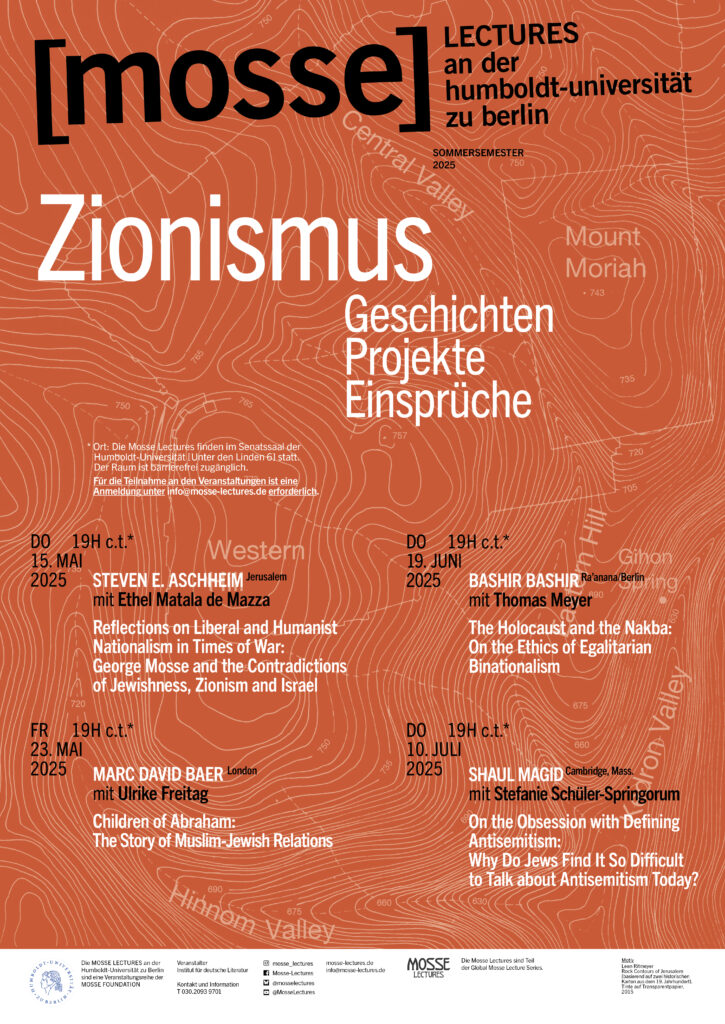Zionism. History – Projects – Objections
Summer Term 2025
In the summer term 2025, the Mosse Lectures will be dedicated to the currently much-discussed topic of Zionism. In view of the intensity of the recent debates surrounding the Middle East conflict, the new series of lectures aims to provide clarification and insight into the history of Zionism beyond the narrow definition of the term as the project of founding a Jewish nation-state and by including Palestinian perspectives. The aim is to outline a history of Zionism before 1948, in which perspectives from philosophy, Jewish studies and historiography make it clear that there was no such thing as the Zionism. Its history is polyphonic, plural and circuitous. It can be understood as the history of the »personal and ideological diversity« (Shlomo Avineri) of a national movement whose internal tensions characterize Israel’s prehistory.
As clearly as the Zionist project began at the end of the 19th century with the dual opposition to antisemitism and the »addiction to assimilation«, with concepts of »self-emancipation« and »Jewish renaissance«, the form of its political realization was not self-evident. One of the fundamental challenges facing the Zionist movement from the very beginning was the internal Jewish conflict between the declared goal of establishing a Jewish nation state and the traditions of Judaism as a »people in exile«, which Hannah Arendt formulated in 1945 as a dual loyalty – and identified as an unavoidable problem for the Zionist project. In addition to the question of Palestine, one of the main sites of this tension since the early twentieth century has been the diaspora in the United States, where many Jews were sceptical about the project of founding a state and, above all, about the idea of emigrating to it, and where terms such as »exile« or »galut« had positive connotations. A look at the history of Zionism opens up a multitude of narratives, drafts and objections, among which cultural Zionism in particular was a vital alternative to the project of founding a state in the early twentieth century. The aim of the series is to make this diversity visible.
All events will be held in English. Registration at info@mosse-lectures.de is required to attend the events.
Steven E. Aschheim
Reflections on Liberal and Humanist Nationalism in Times of War: George Mosse and the Contradictions of Jewishness, Zionism and Israel
with Ethel Matala de Mazza
Thursday, May 15, 2025 | 7:15 p.m. | Senatssaal of Humboldt University, Unter den Linden 6, 10117 Berlin
What is the relationship between the ongoing Israel-Gaza War and the person and thought of George Mosse in whose name these Lectures are dedicated? Given Mosse’s deep commitments to both enlightened liberalism and what he called »humanist nationalism«, this talk will examine the threats and challenges the war is posing to the possibilities and realities of these fragile values and institutions in the midst of war and its aftermath.
STEVEN E. ASCHHEIM: Historian; Emeritus Professor of History at the Hebrew University, Jerusalem. He also acted as the Director of the Franz Rosenzweig Minerva Research Center for German-Jewish Literature & Cultural History. His research areas include European cultural and intellectual history as well as modern German and Jewish History. Apart from academic journals, he has written for the New York Times and Ha’aretz, among others. He has spent sabbaticals at the Graduate Theological Union in Berkeley, the Institute of Advanced Study at Princeton and in 2002–2003 was the first Mosse Exchange Professor at the University of Wisconsin, Madison.
gallery:
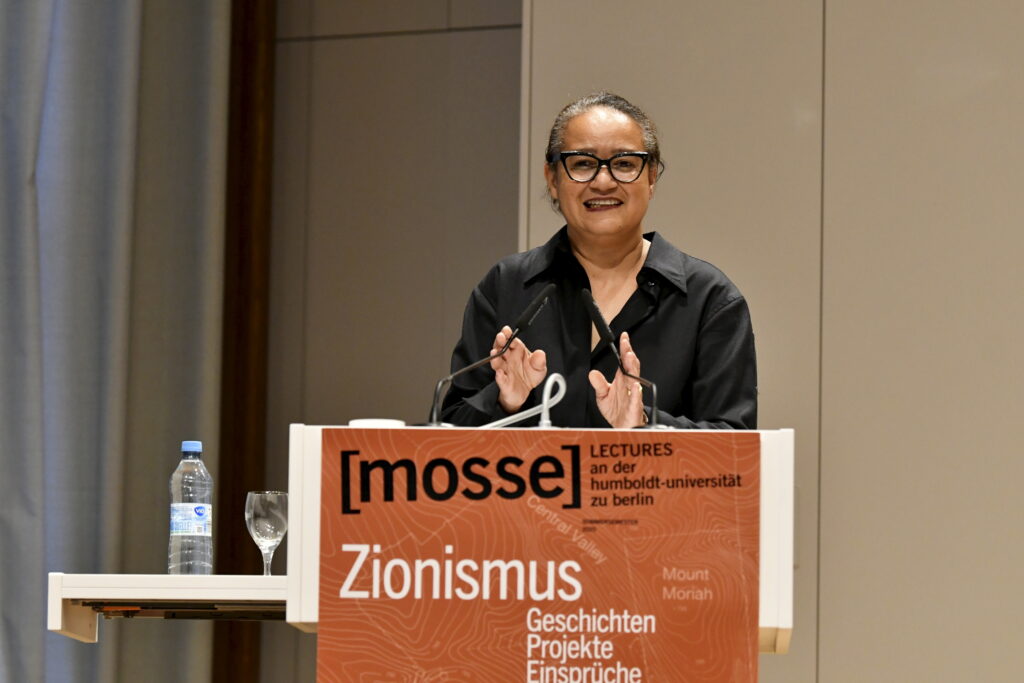
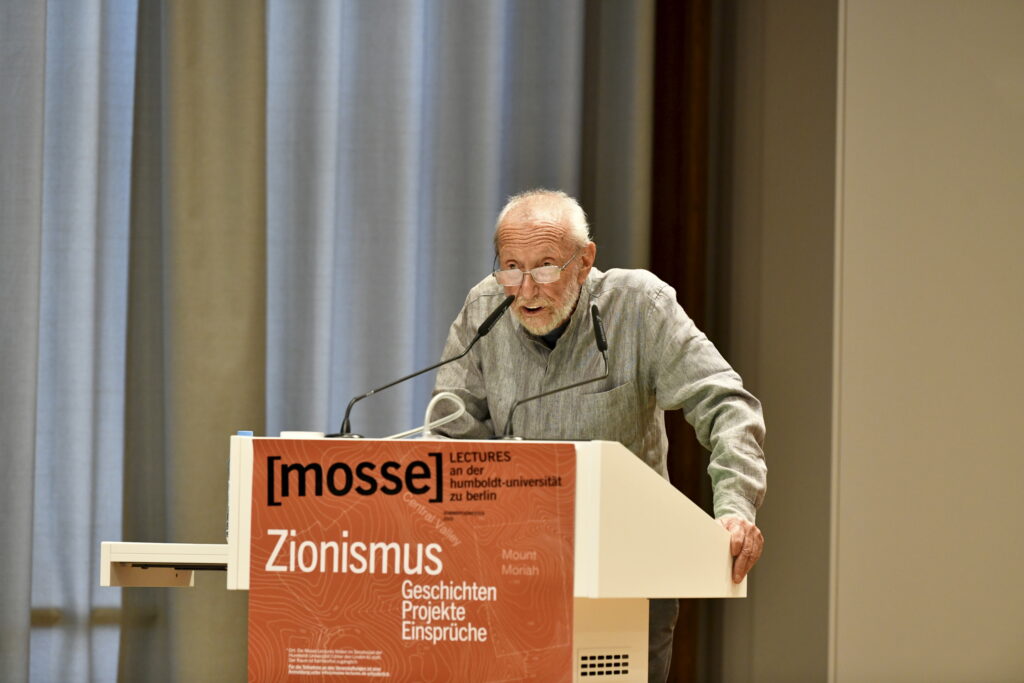
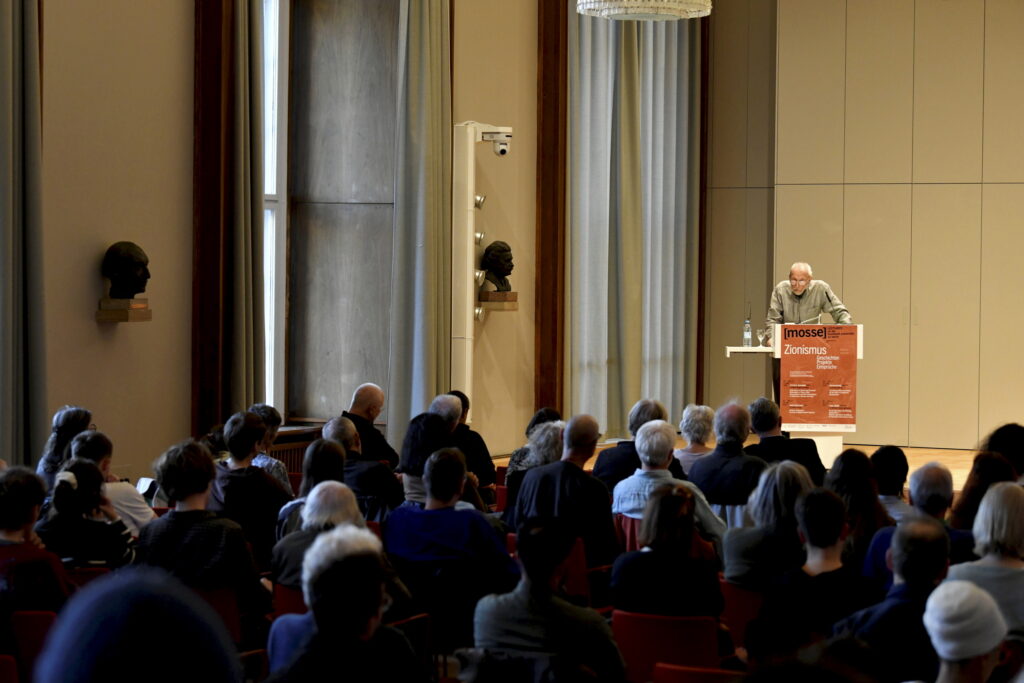
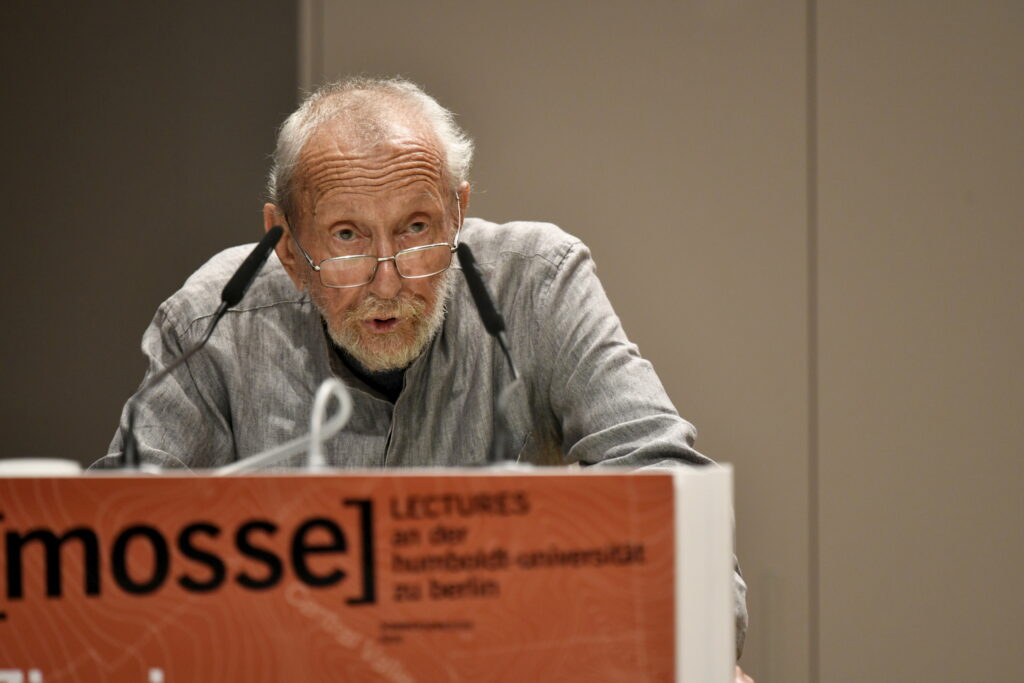
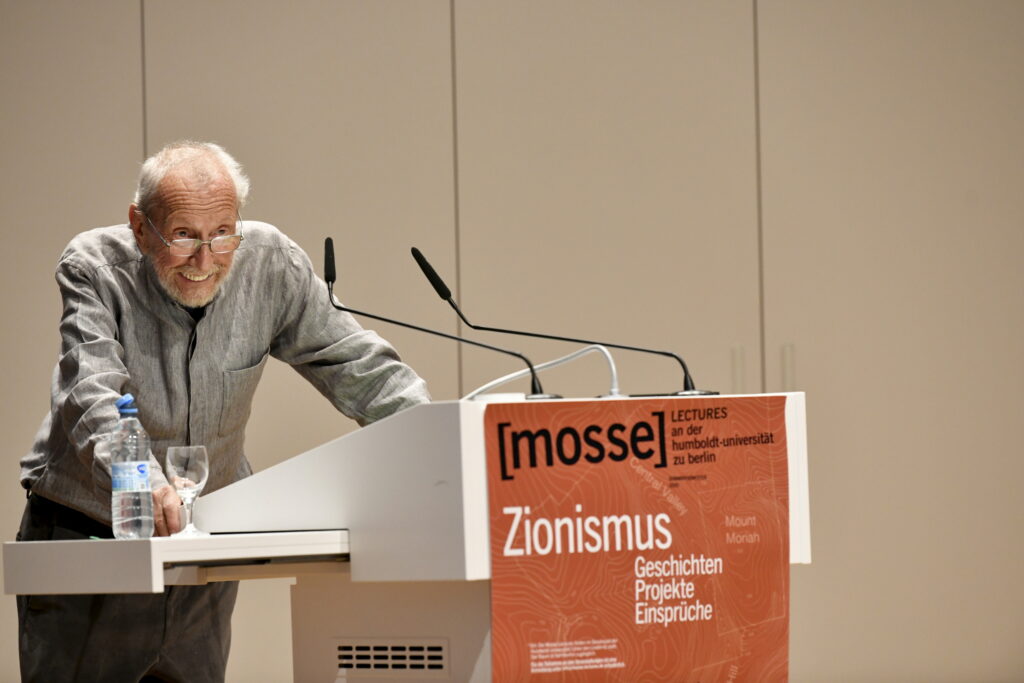
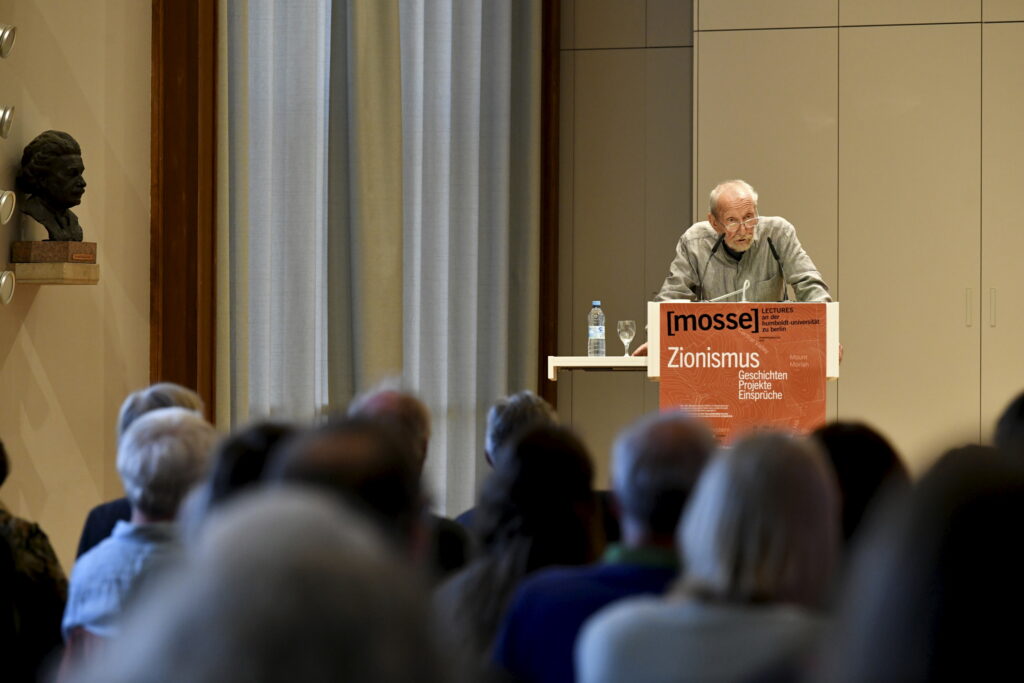
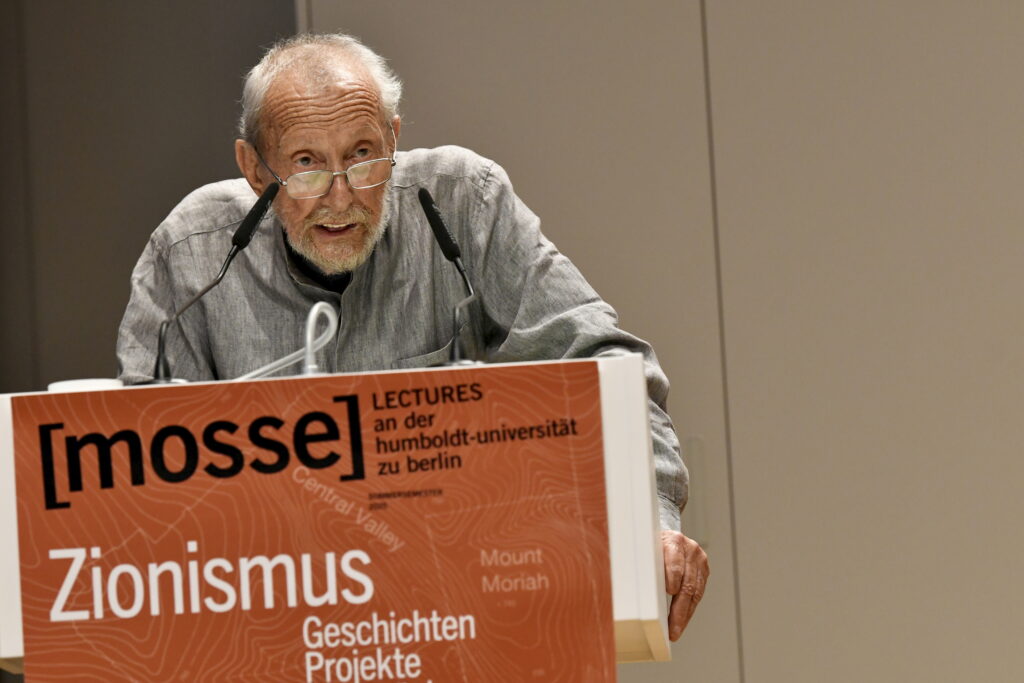
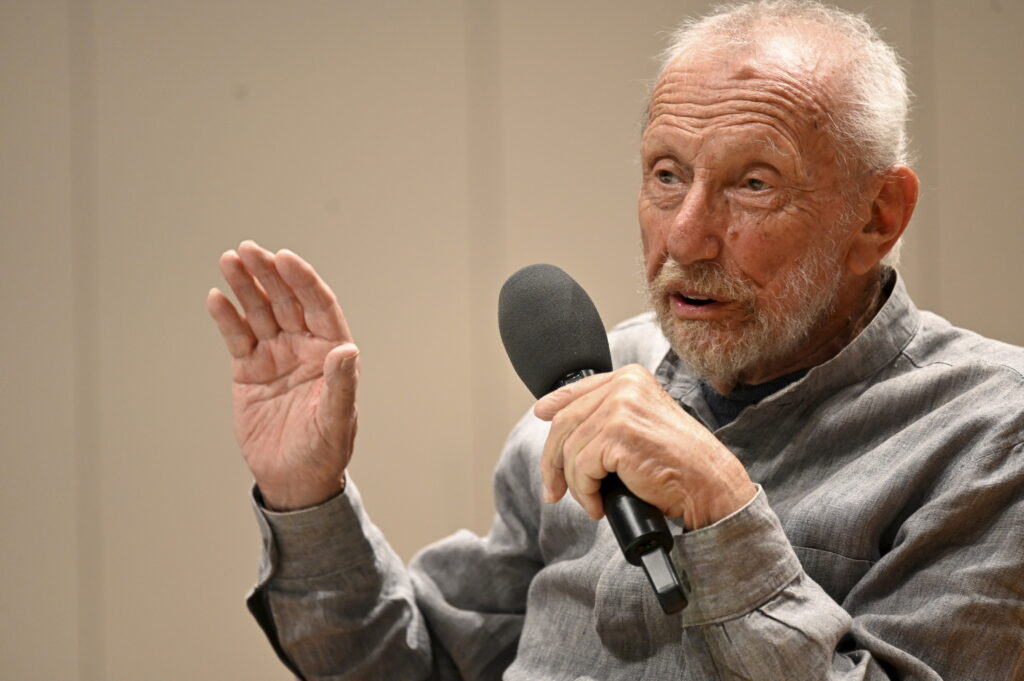
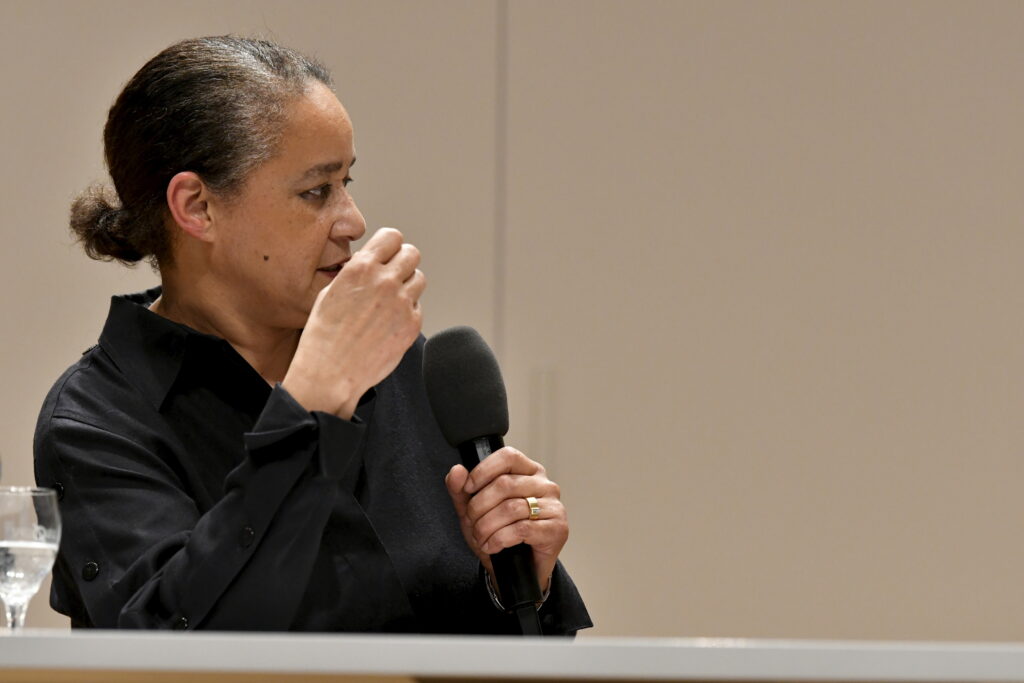
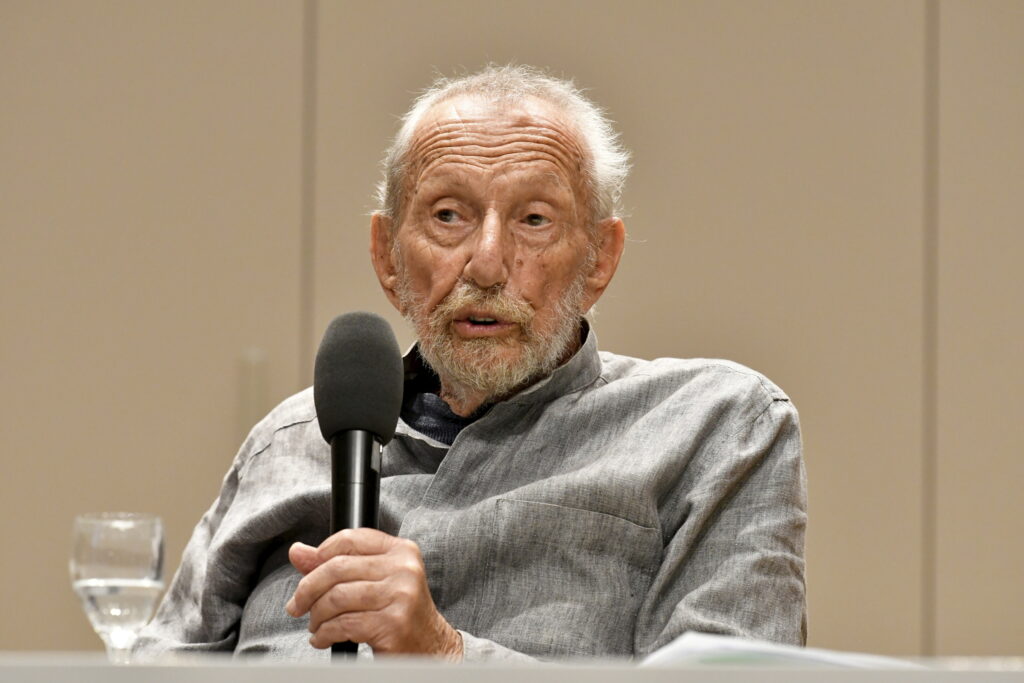
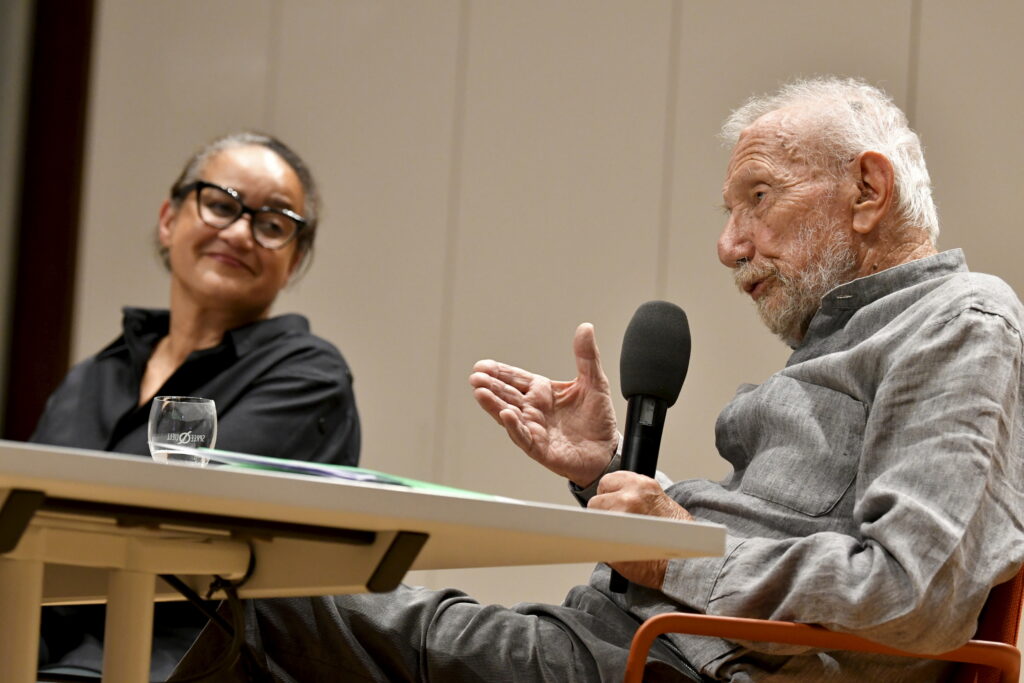
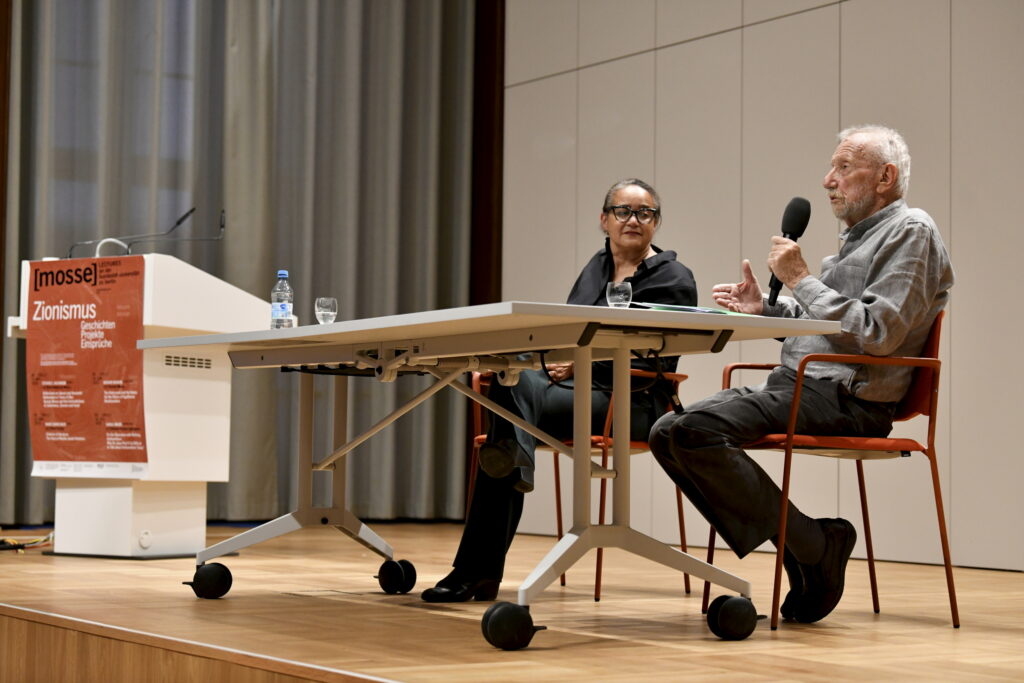
Marc David Baer
Children of Abraham: The Story of Muslim-Jewish Relations
with Ulrike Freitag
Friday, May 23, 2025 | 7:15 p.m. | Senatssaal of Humboldt University, Unter den Linden 6, 10117 Berlin
The talk presents the book, »The Children of Abraham: The Story of Muslim-Jewish Relations«, which explores the historical relationship between Jews and Muslims from the seventh century to the twenty first. It highlights key moments in their interaction, including the Biblical stories of Abraham, Ishmael, and Isaac, and the Qur’anic narrative of Ishmael and Hagar. The book identifies five relational dynamics that shape their relations: symbiosis, pact of protection, the Jew as ally of the Muslim, the Muslim as saviour of the Jew, and Christian hegemony. It argues against the myths of interfaith utopia and perpetual enmity, detailing how these dynamics have shaped Jewish-Muslim interactions over fourteen centuries, including periods of cooperation, conflict, and power struggles.
MARC DAVID BAER: Historian; Head of Department and Professor of International History at the London School of Economics and Political Science. His areas of expertise include Muslim-Jewish relations and the Ottoman Empire. His first book, »Honoured by the Glory of Islam: Conversion and Conquest in Ottoman Europe« [2011], won the Albert Hourani Book Award. His book, »Sultanic Saviors and Tolerant Turks: Writing Ottoman Jewish History, Denying the Armenian Genocide« [2020], won the Dr. Sona Aronian Book Prize for Excellence in Armenian Studies. His latest book »The Ottomans: Khans, Caesars and Caliphs« was published in 2021.
ULRIKE FREITAG: Islamic scholar and historian; Director of the Leibniz-Zentrum Moderner Orient (ZMO) and Professor of Islamic Studies at the FU Berlin. She is co-editor of the Journal of Arabian Studies, the Journal of Global History and the journal Geschichte und Gesellschaft. Her current research project is entitled »An Oasis Facing Globalisation: The History and Development of Hegra [Saudi Arabia] since the late 19th Century«. Her research interests include the history and society of the Middle East since 1500 and the history of the Arab Provinces of the Ottoman Empire since 1750.
gallery:
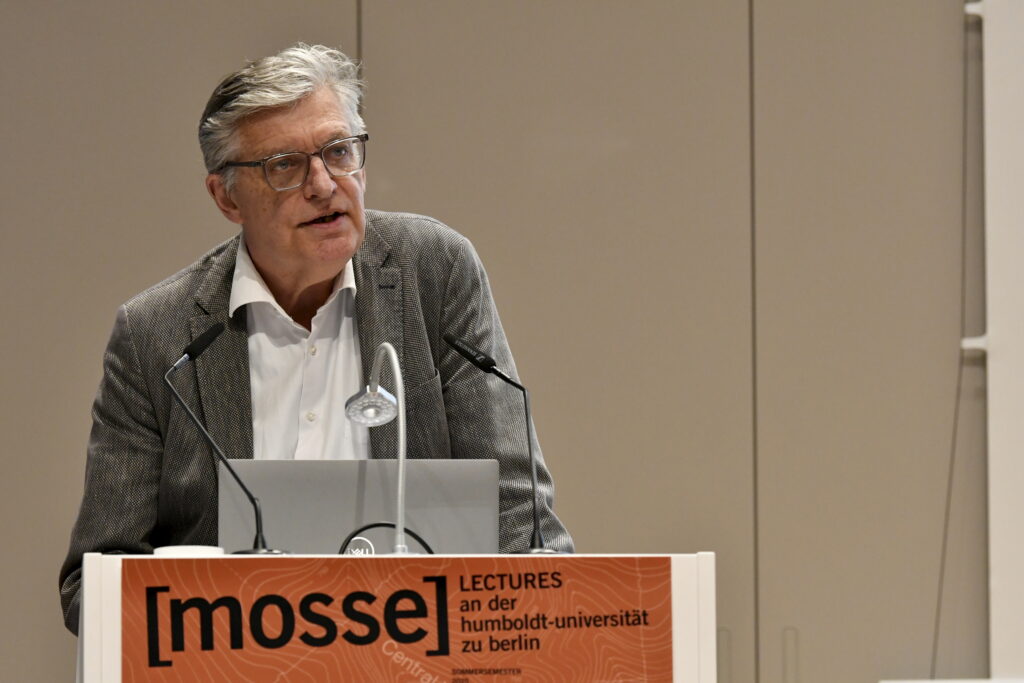
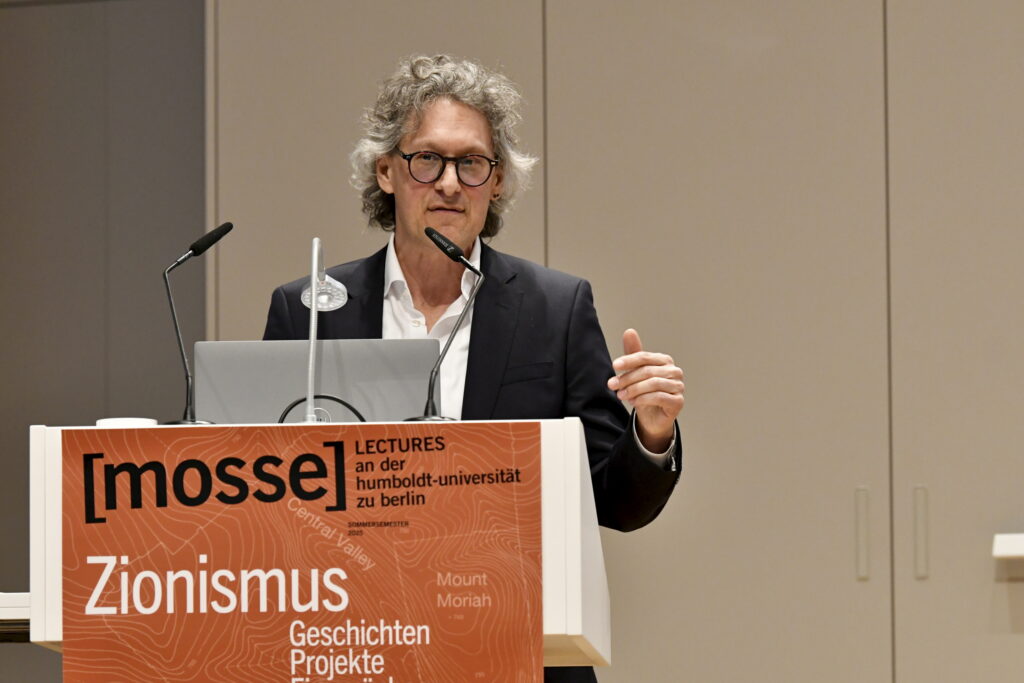
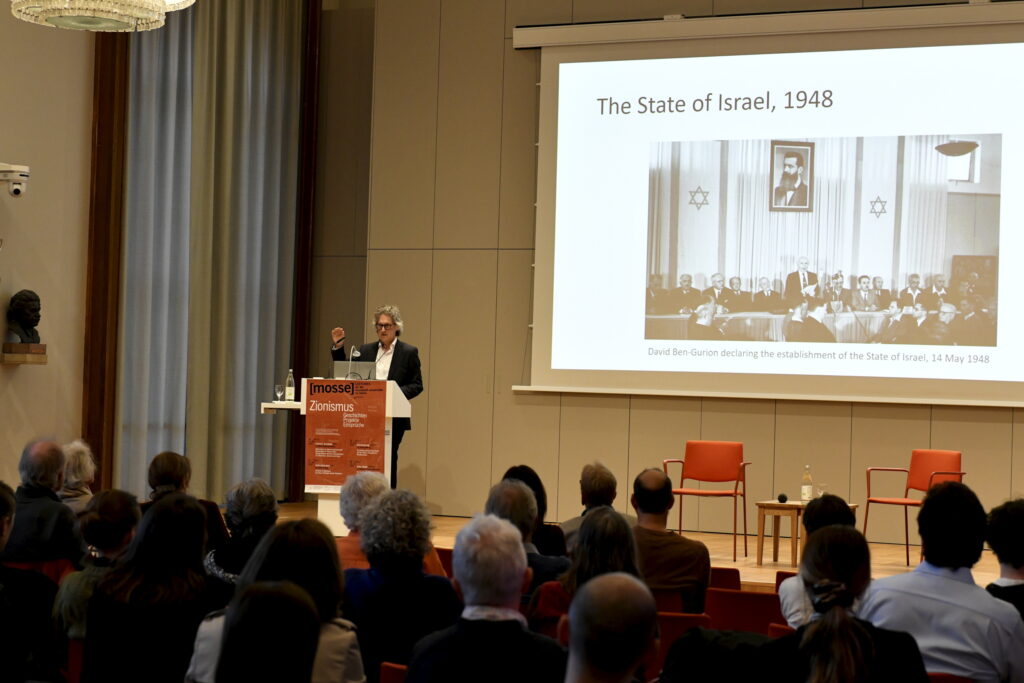
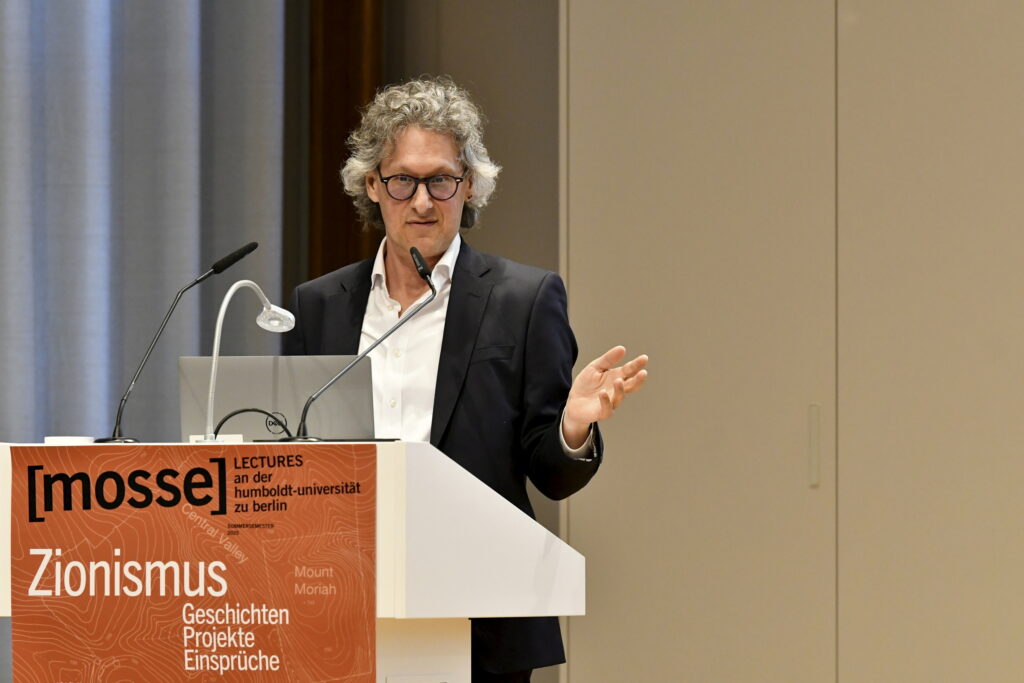
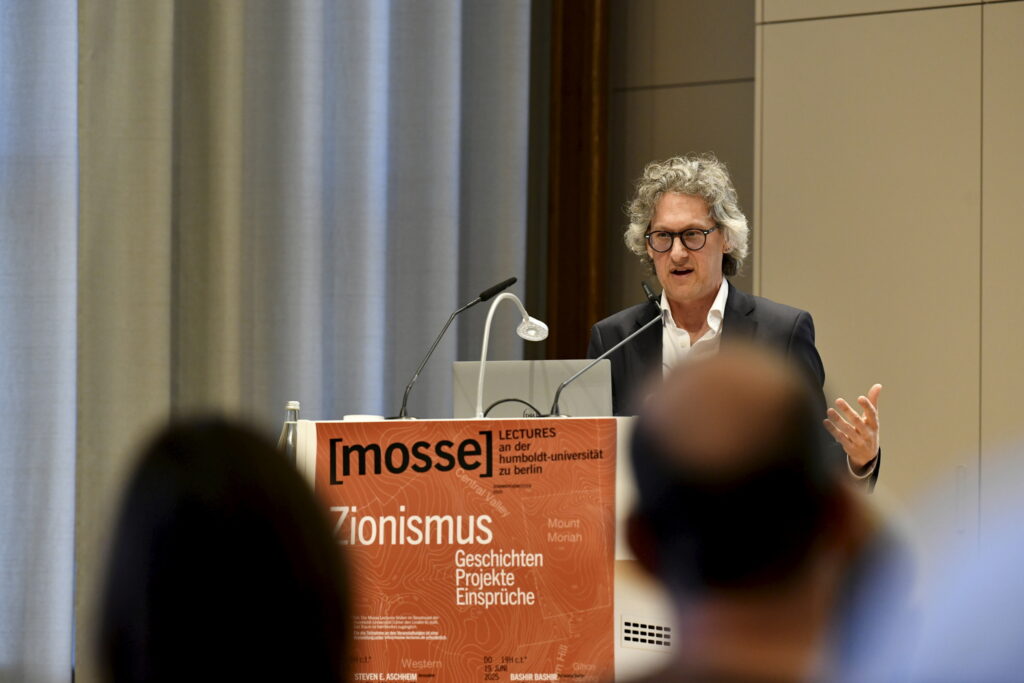
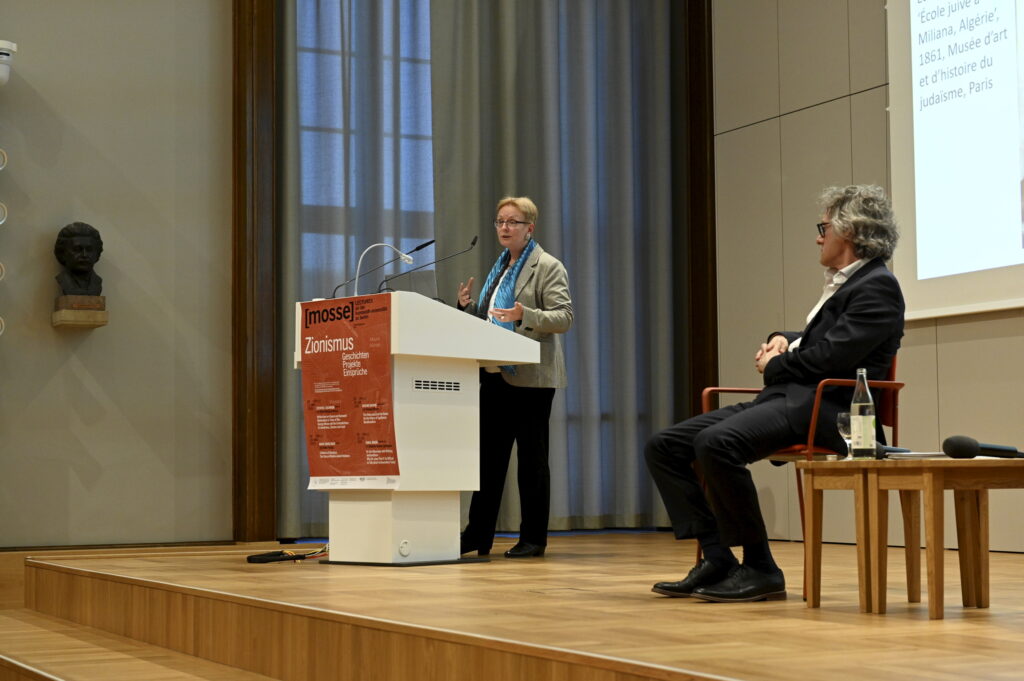
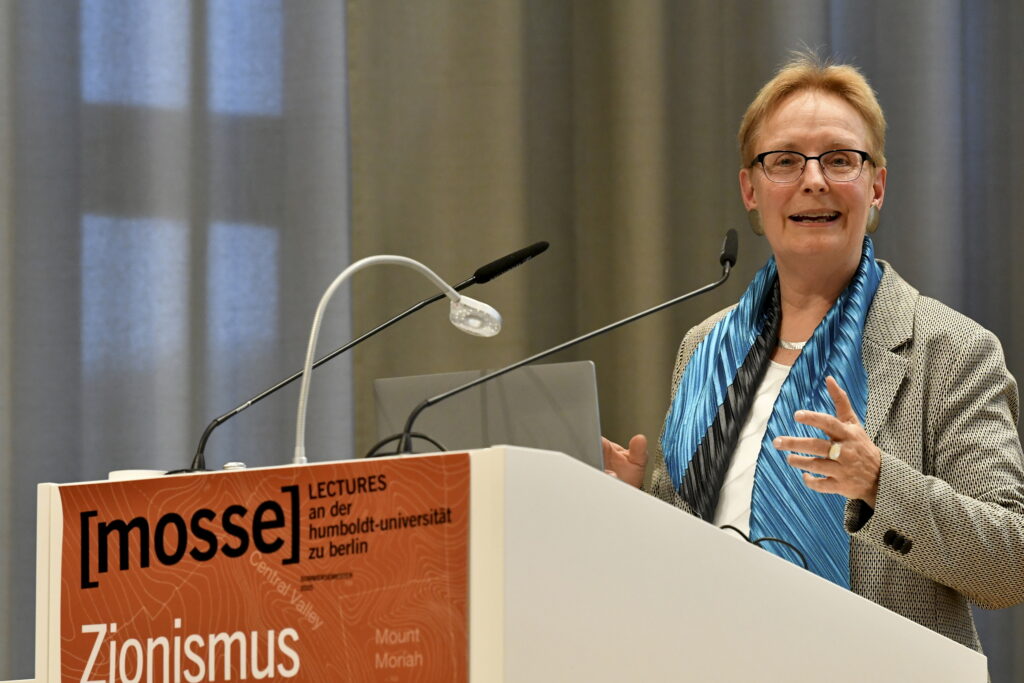
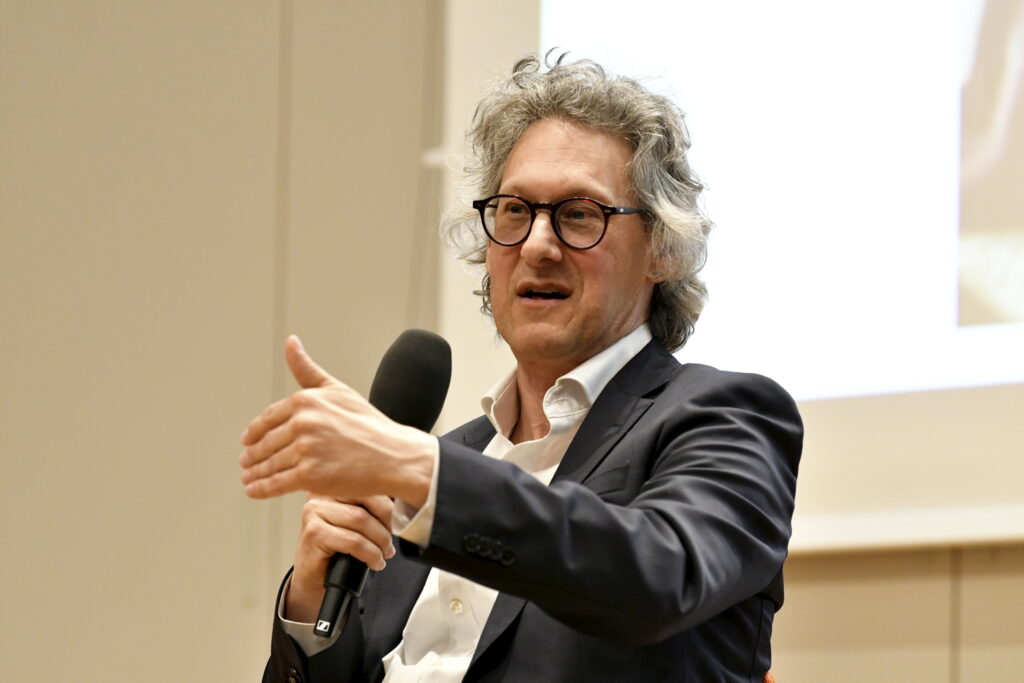
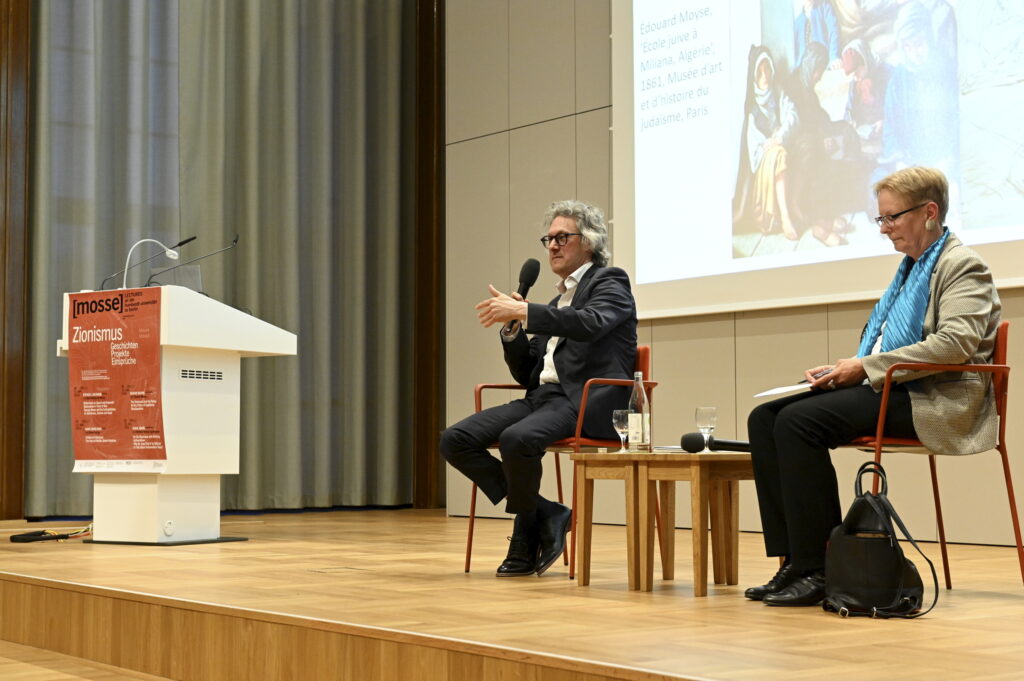
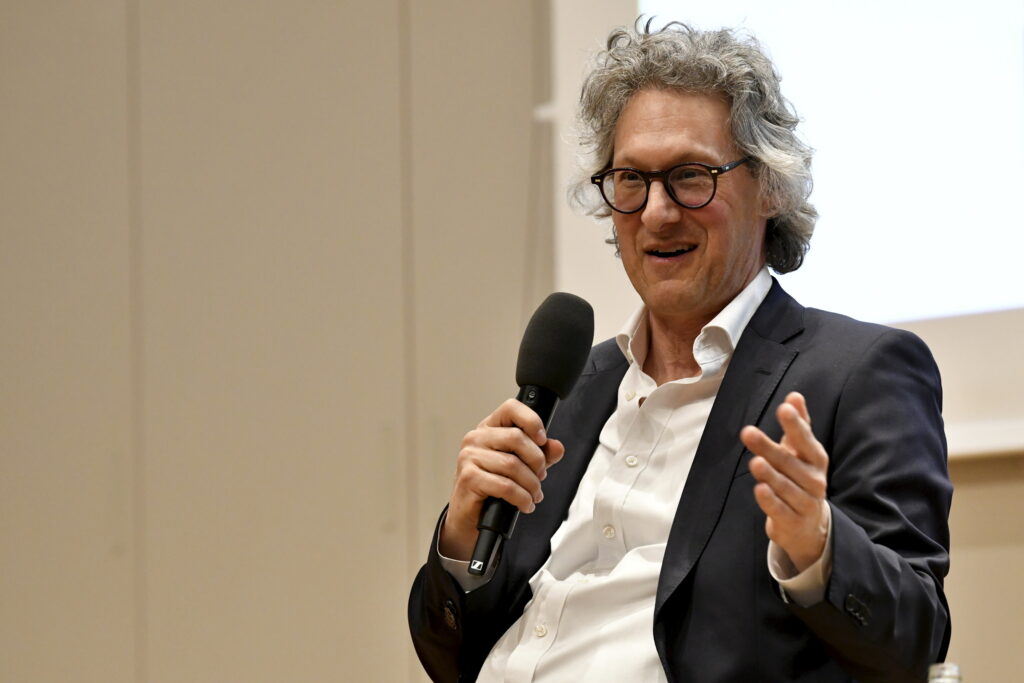
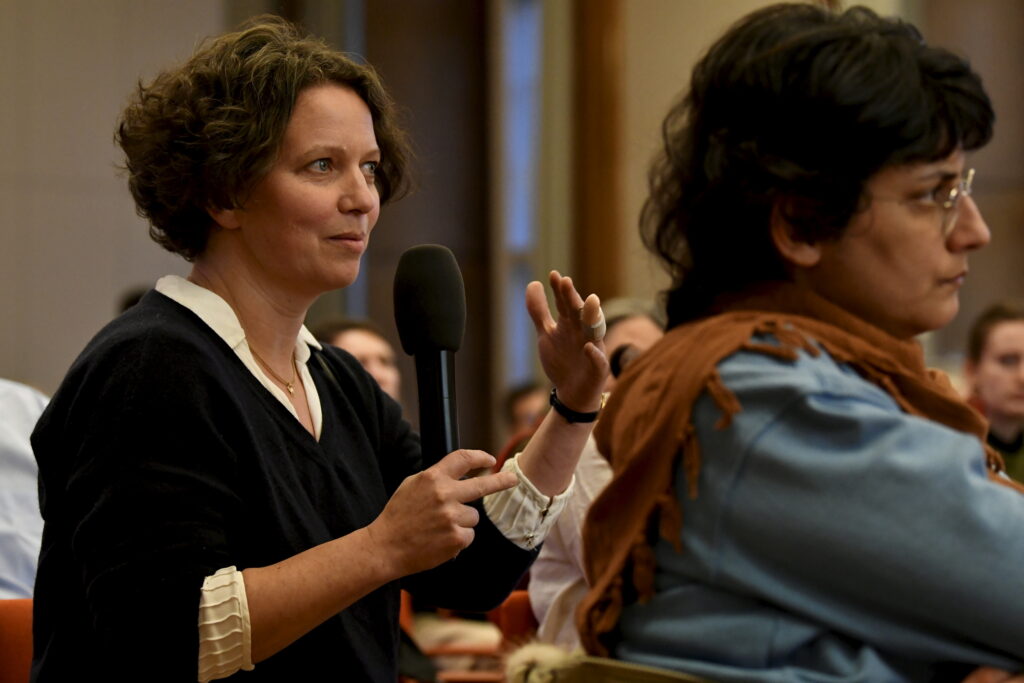
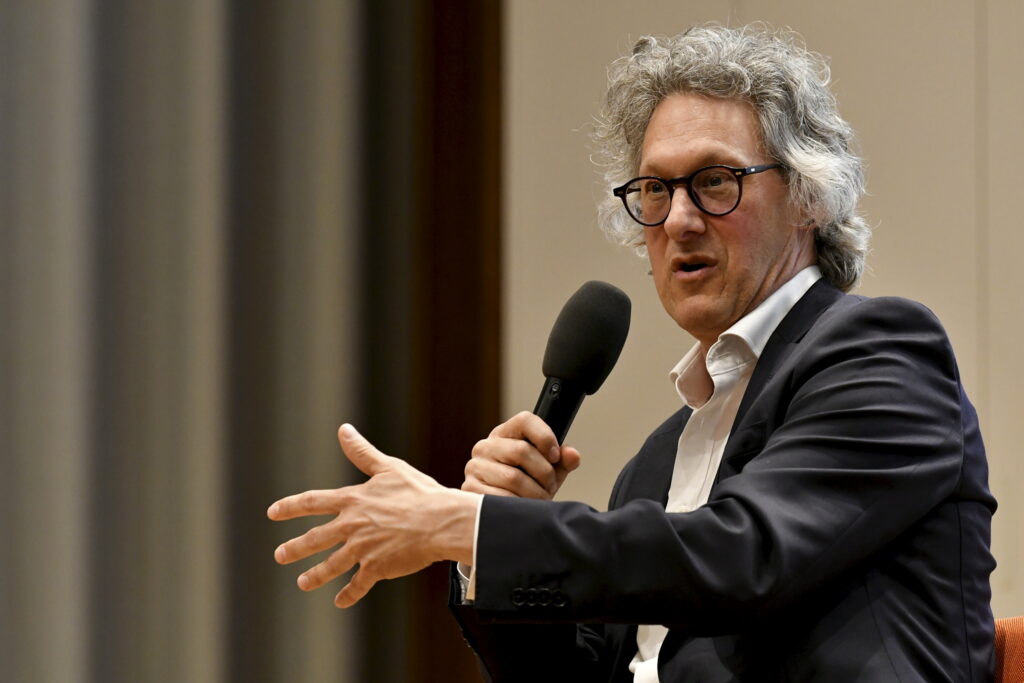
Bashir Bashir
The Holocaust and the Nakba: On the Ethics of Egalitarian Binationalism
with Thomas Meyer
Thursday, June 19, 2025 | 7:15 p.m. | Senatssaal of Humboldt University, Unter den Linden 6, 10117 Berlin
This talk demonstrates the connections and entanglements between the memories and traumas of the Holocaust and the Nakba (though the events are different in magnitude and nature). Deliberating jointly on the Holocaust and the Nakba, this talk argues, gives rise to a new moral and political frame in Israel/Palestine, namely egalitarian binationalism. The talk concludes that egalitarian binationalism’s insistence on envisioning affective relations of co-belonging based on an ethics of equality, parity and cohabitation offers rich resources for historical reconciliation in Israel/Palestine.
BASHIR BASHIR: Political Scientist; associate professor in the department of sociology, political science and communication at the Open University of Israel and a senior research fellow at the Van Leer Jerusalem Institute. Currently, he is a fellow at the Wissenschaftskolleg zu Berlin. His primary research interests are nationalism and citizenship studies, liberalism, democratic theory, decolonization, the politics of reconciliation, and alternatives to partition in Palestine/Israel. He is the co-editor of »The Holocaust and the Nakba: A New Grammar of Trauma and History« [2018] and »The Arab and Jewish Questions: Geographies of Engagement in Palestine and Beyond« [2020].
THOMAS MEYER: Philosopher; Adjunct Professor at Ludwig-Maximilians-Universität München. His research centers around the history of ideas and philosophy in ancient Greece and the 20th century with a focus on cultural and political philosophy as well as the philosophy of history. He is the editor of Hannah Arendt’s works at Piper Verlag and in 2024 edited two previously unknown texts by and with Arendt in »Über Palästina« [On Palestine] about the subject. His highly acclaimed biography of Hannah Arendt was published in 2023. Meyer has also authored numerous books, essays, radio-essays and newspaper articles on the history of ideas in the 20th century.
gallery:
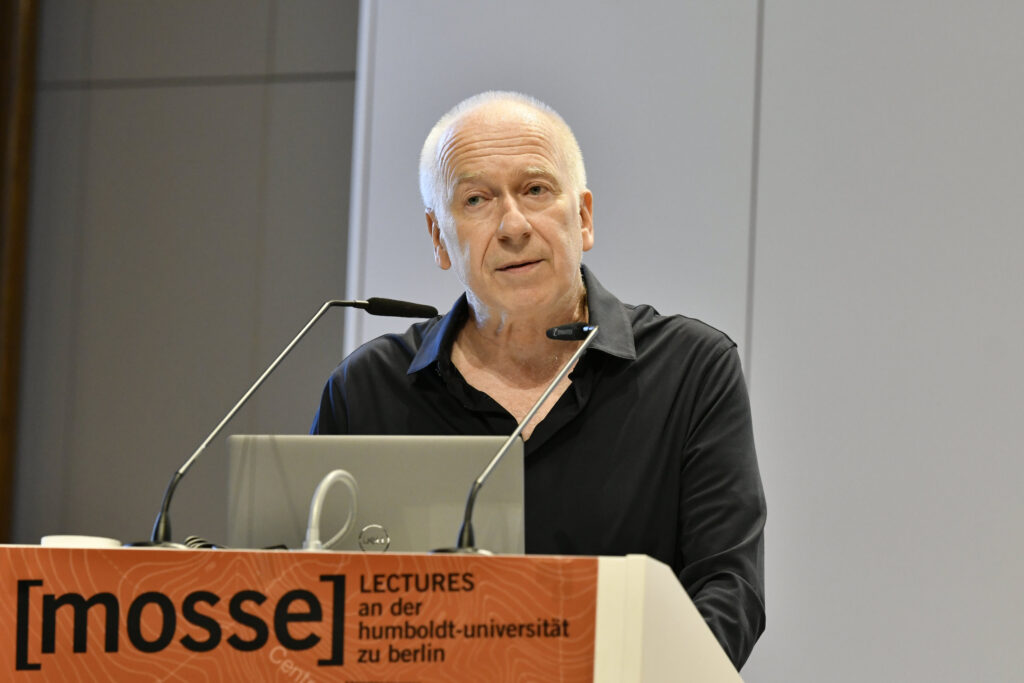
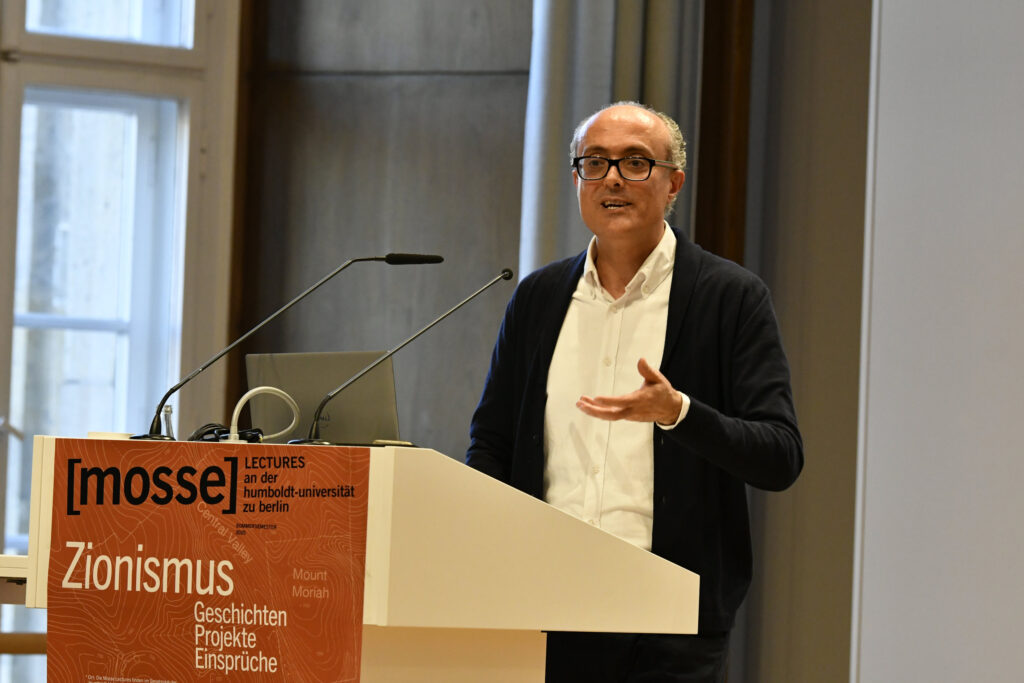
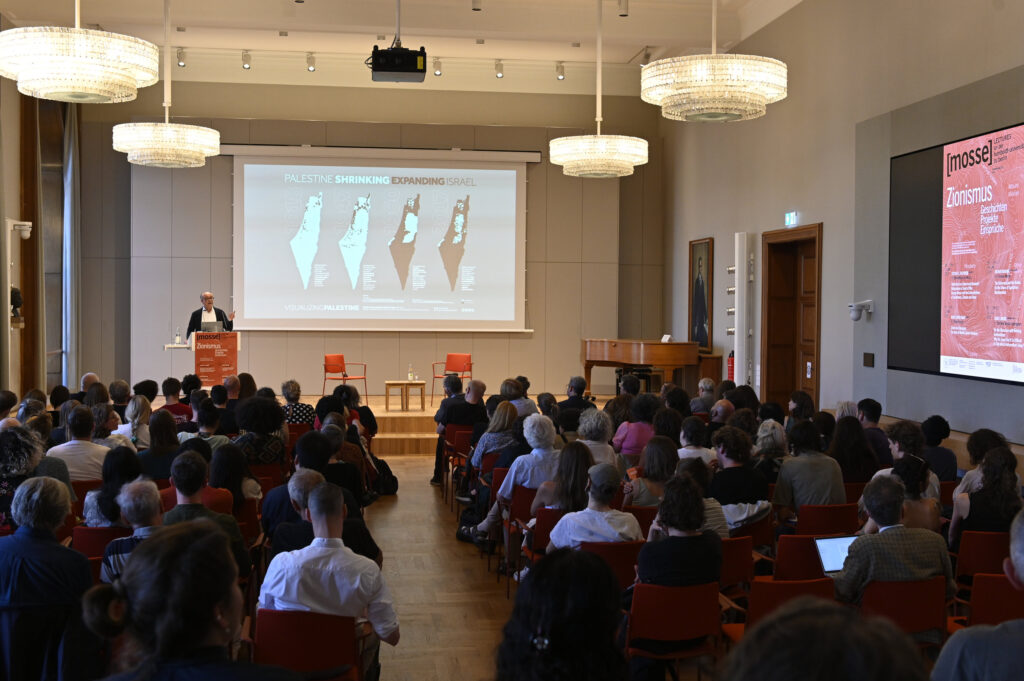
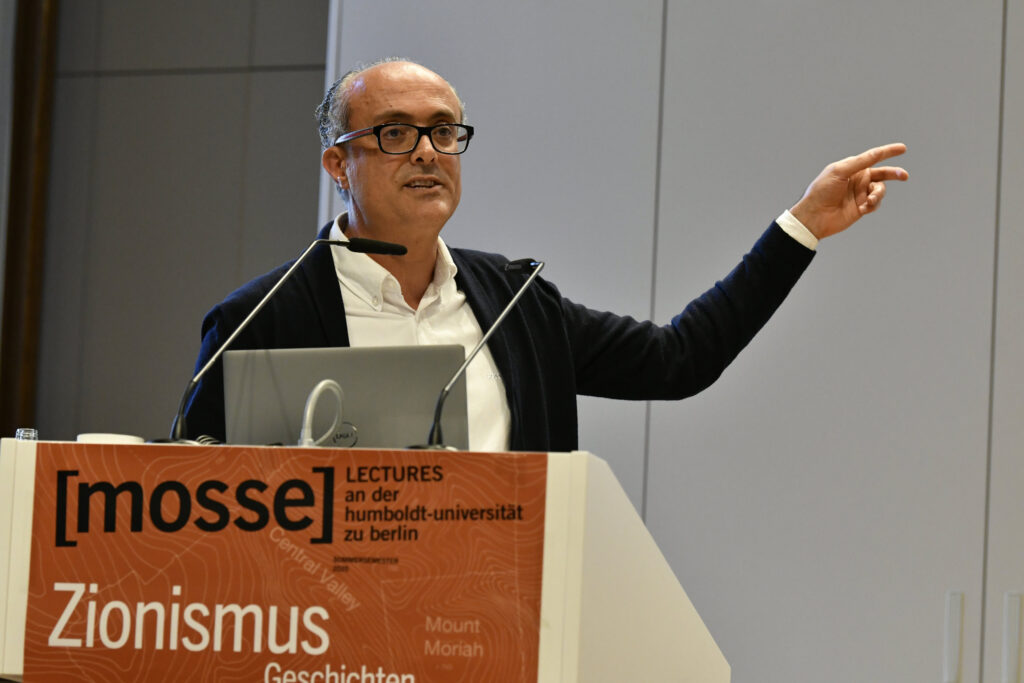
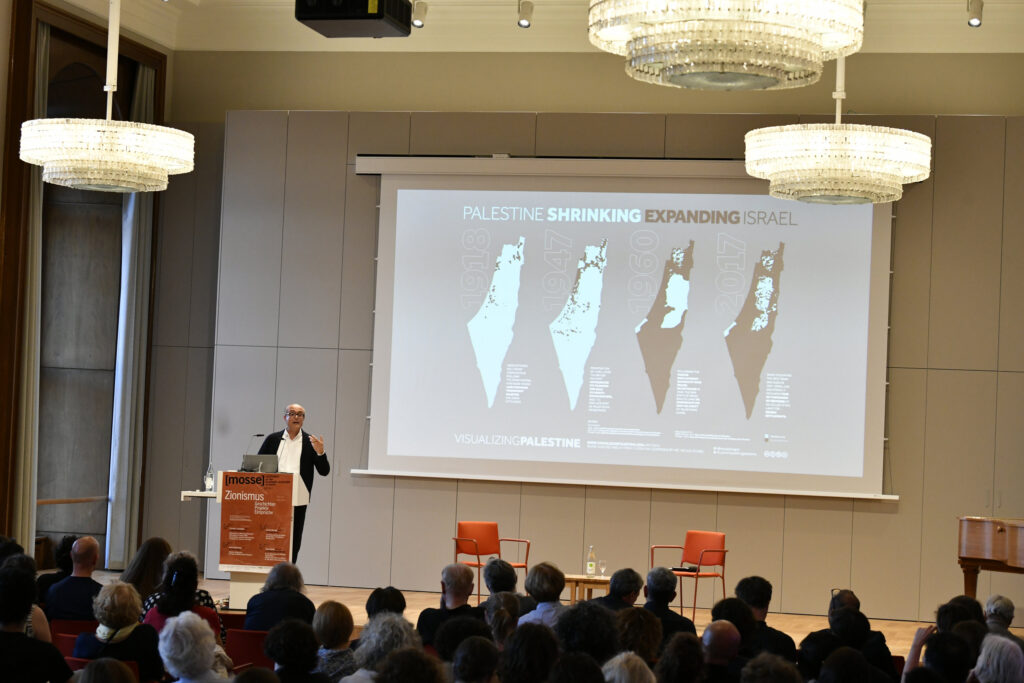
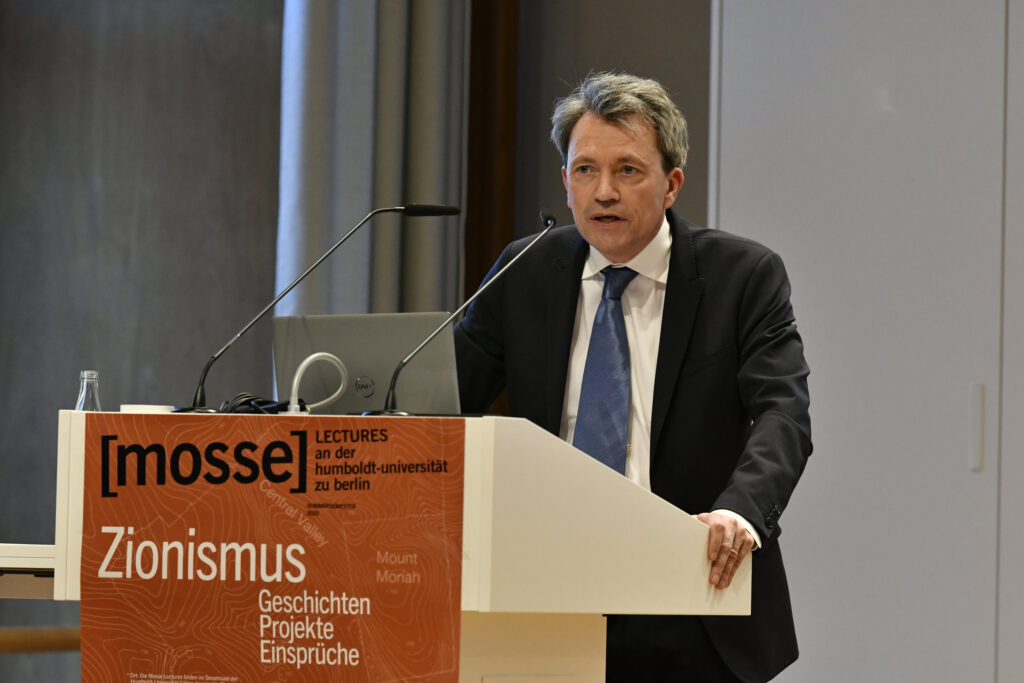
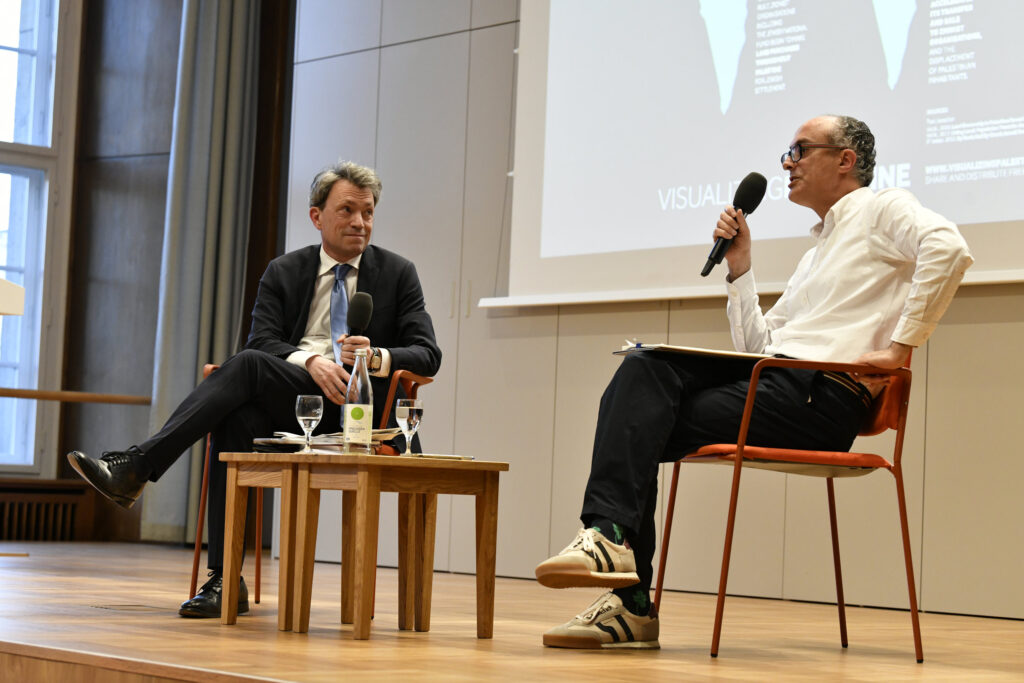
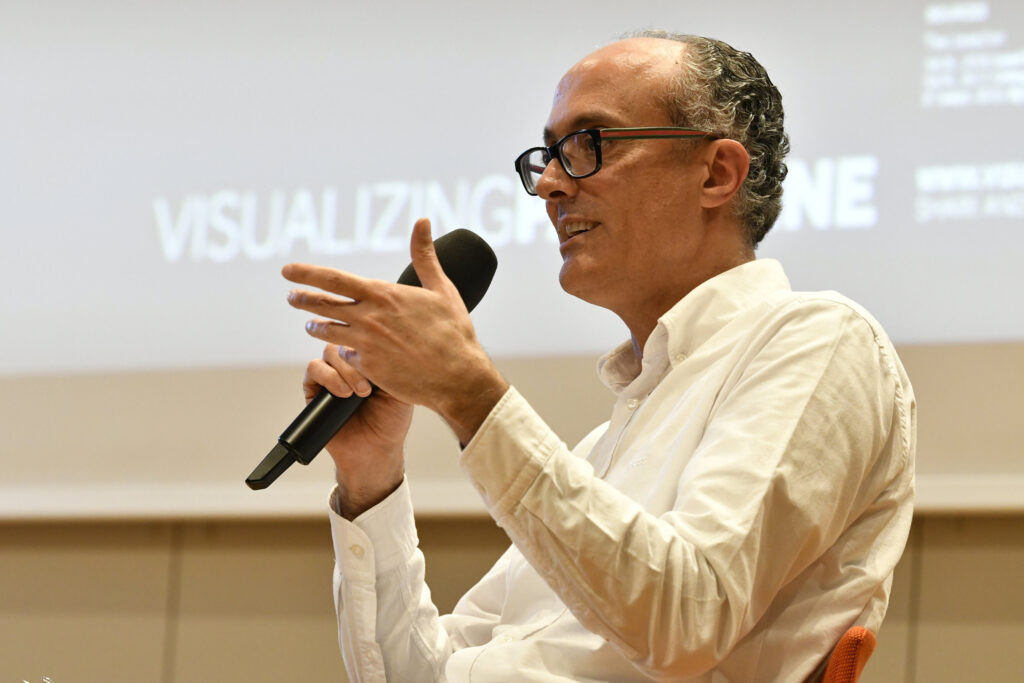
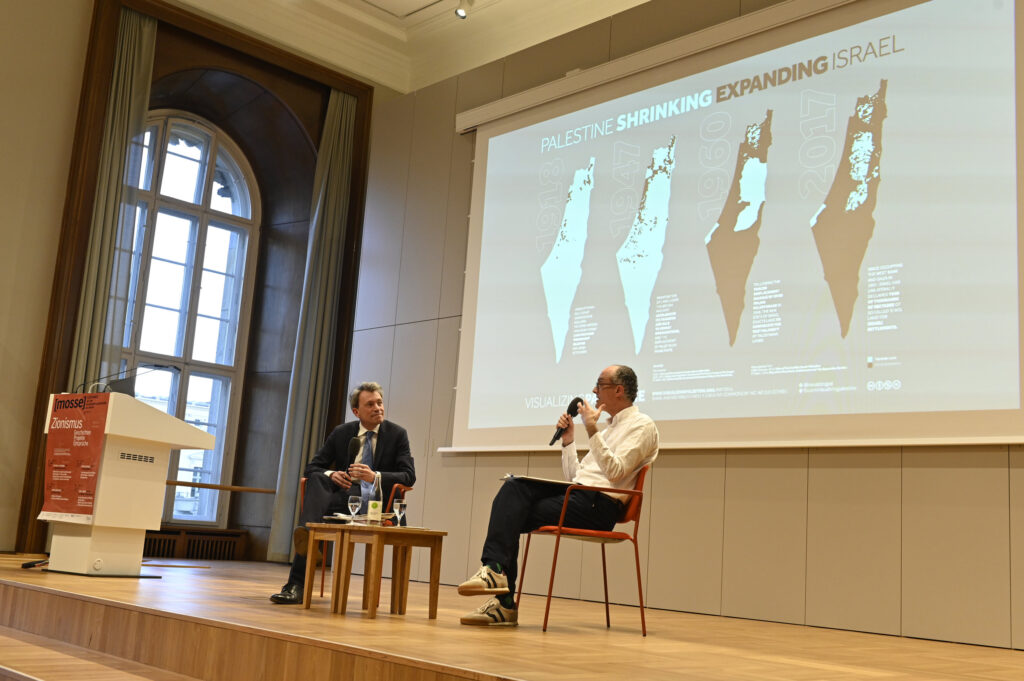
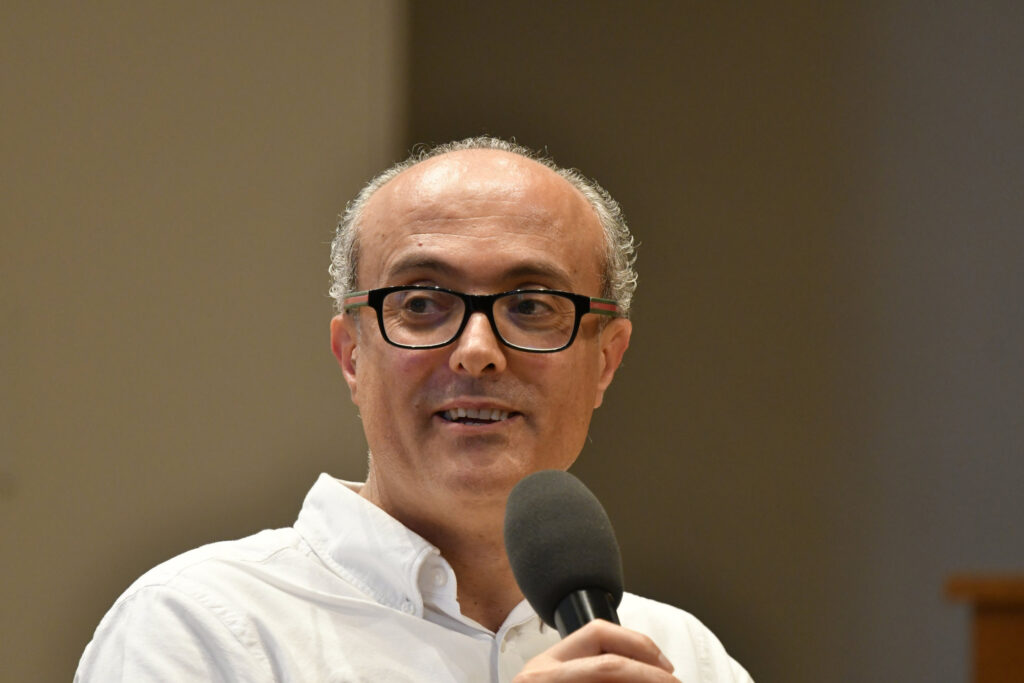
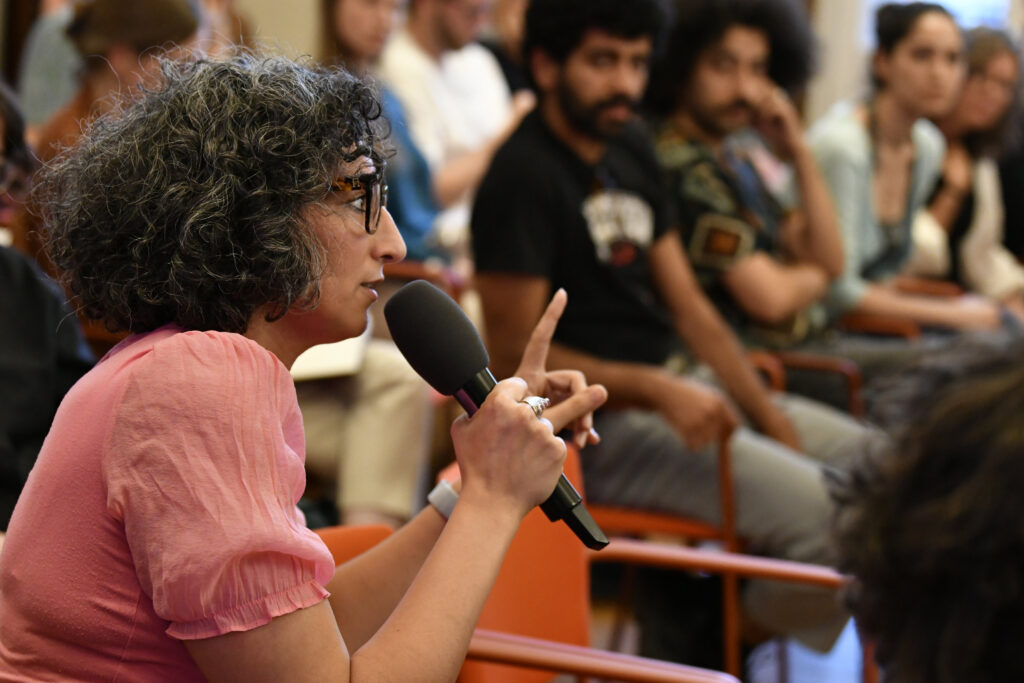
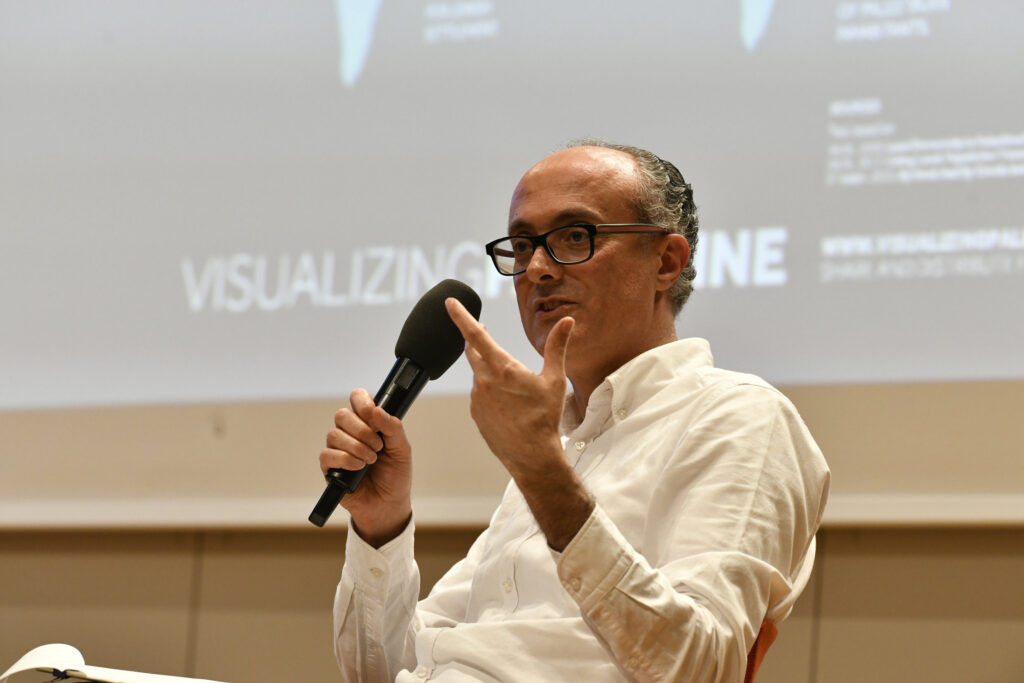
Shaul Magid
On the Obsession with Defining Antisemitism: Why Do Jews Find It So Difficult to Talk about Antisemitism Today?
with Stefanie Schüler-Springorum
Thursday, July 10, 2025 | 7:15 p.m. | Senatssaal of Humboldt University, Unter den Linden 6, 10117 Berlin
Whereas Jews have often disagreed on almost all matters of their history and identity, one of the things they all seemed to agree about is antisemitism.
Yet in our time there has been a robust debate among Jews about what constitutes antisemitism. Various documents have been written trying to define antisemitism, and various organizations have sparred about implementing those definitions.
In this lecture I will discuss this problem in three parts. First, I will discuss the concept of »eternal antisemitism« that is, the claim that antisemitism is not conditional, contextual, or historical, but somehow »eternal«. Second, I will discuss the debate about the uniqueness of the Holocaust in Jewish scholarship as part of the antisemitism debate. Third, I will discuss questions around the exceptionalism of the state of Israel and how that plays into discussions about antisemitism. I argue that these three issues contribute to why antisemitism is so difficult to define and to discern.
SHAUL MAGID: Judaic Scholar and Rabbi; Teaches Modern Judaism at Harvard Divinity School, is a Senior Fellow at the Center for the Study of World Religions (CSWR) at Harvard University and Rabbi of the Fire Island Synagogue. He is a member of the American Academy for Jewish Research and the American Society for the Study of Religion. His research interests include Jewish thought, Kabbalah, Hasidism and American Jewish Culture, and Zionism. In 2023 »The Necessity of Exile«, a collection of essays on the Jewish relationship to Zionism and exile, was published by Ayin Press.
STEFANIE SCHÜLER-SPRINGORUM: Historian; Director of the Center for Research on Antisemitism at TU Berlin and Co-Director of the Selma Stern Center for Jewish Studies Berlin-Brandenburg and part of the Leo Baeck Institute in various functions for 30 years. Since 2023, she has also been a member of the advisory board of the New Israel Fund Germany, which supports Israelis and Palestinians who work together for a democratic, equal and peaceful future. Her research focuses on German-Jewish history, the history of National Socialism, historiography and remembrance after 1945 and research into antisemitism.
[media response]:
– Article by Patrick Bahners in the Frankfurter Allgemeine Zeitung of July 9, 2025 on the Mosse Lecture by Bashir Bashir: Hamas sei mehr als das: Ein Zionismuskritiker an der Humboldt-Universität


